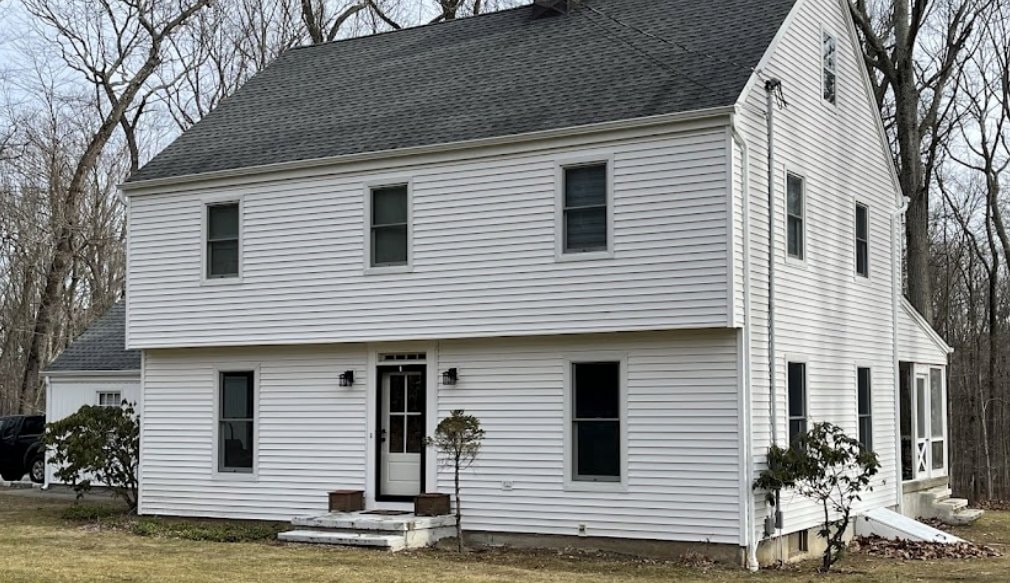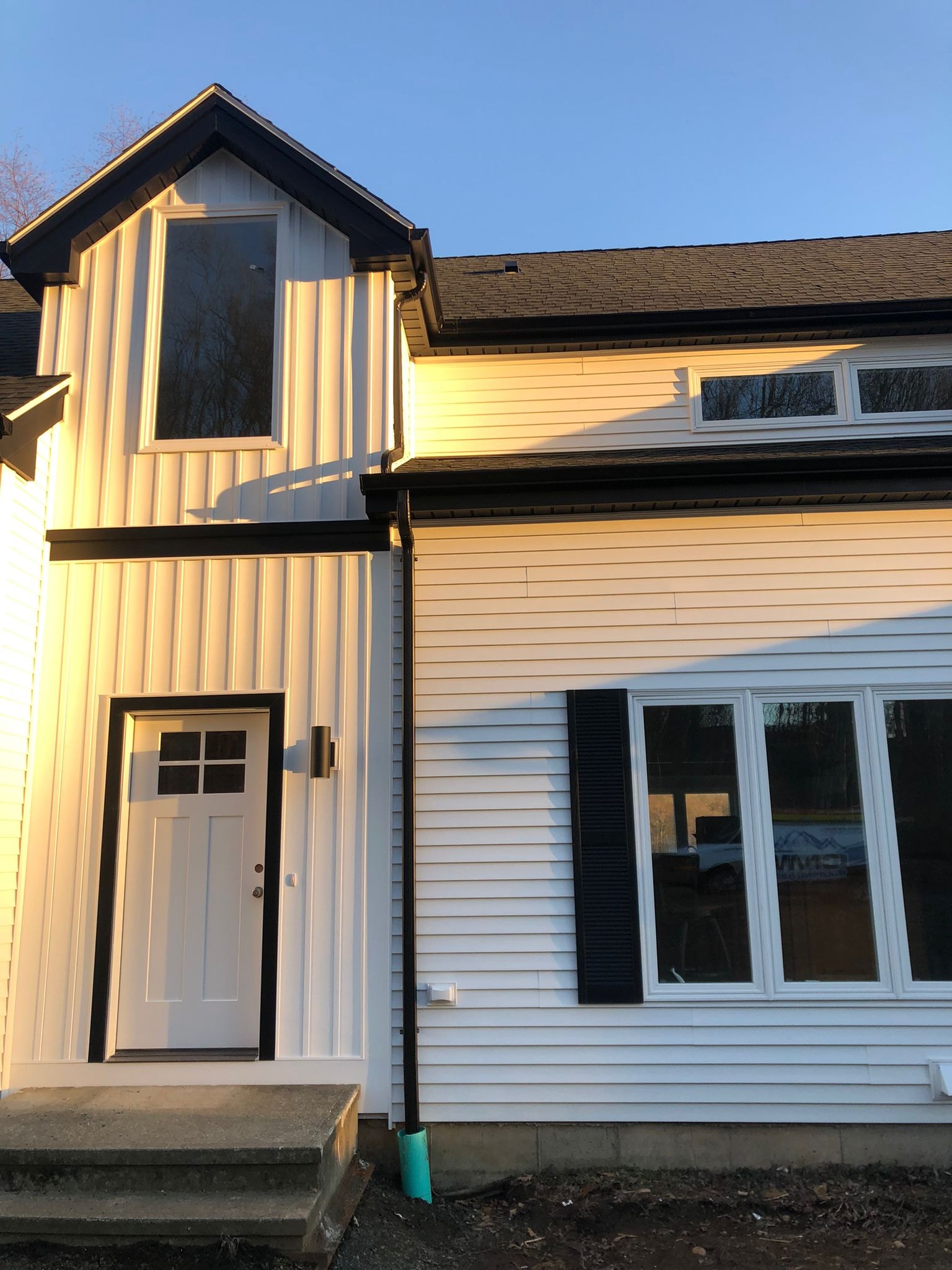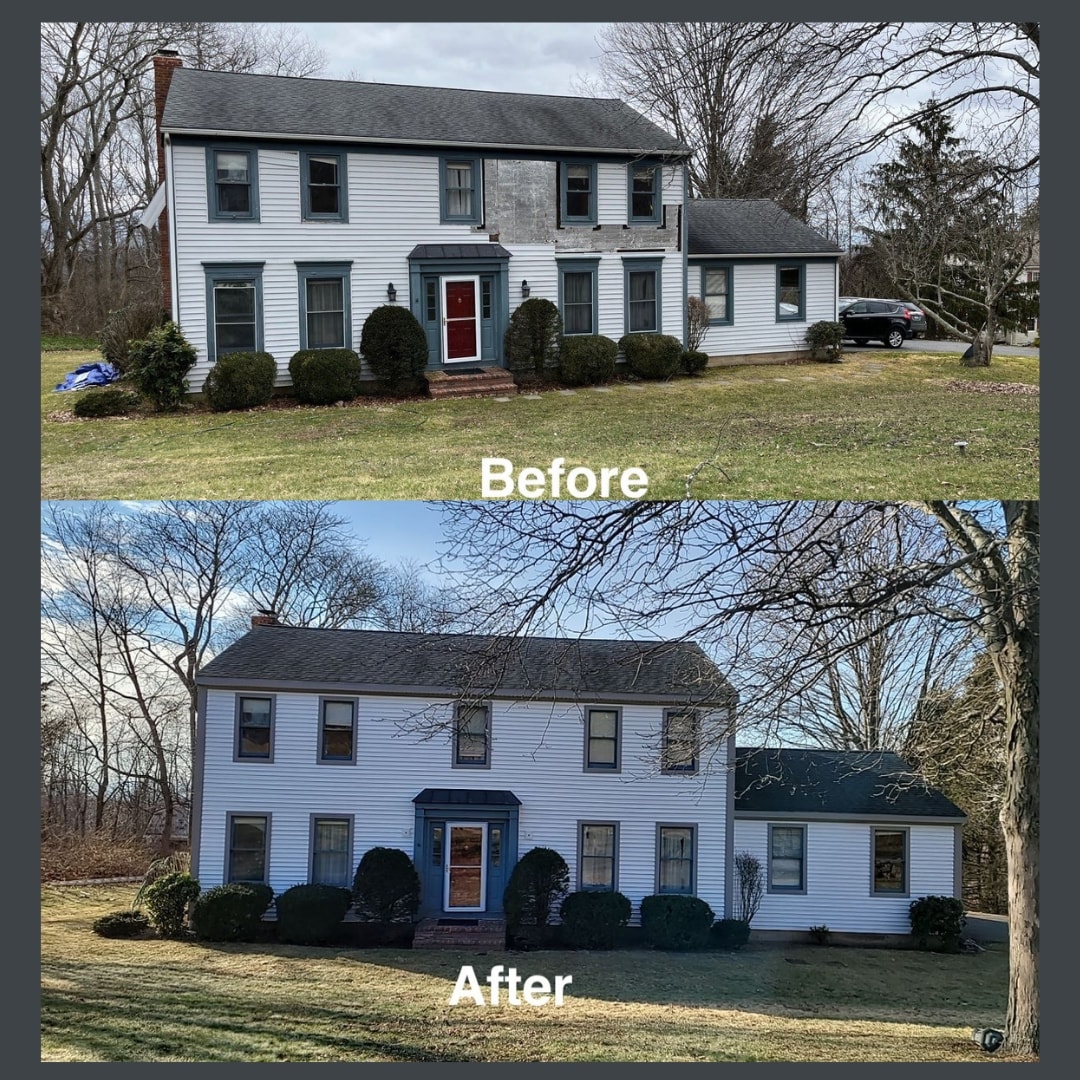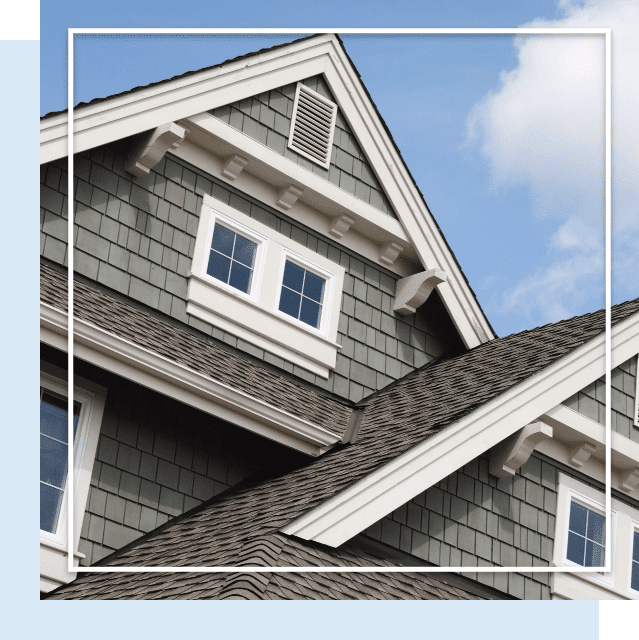Understanding Your Siding Needs
Determining the right siding for your home involves considering several factors to ensure both aesthetic appeal and durability. When selecting materials, homeowners must evaluate the advantages of vinyl siding, fiber cement siding, and wood siding. Each offers distinct benefits: vinyl siding proves cost-effective and requires minimal maintenance; fiber cement siding delivers resilience against harsh weather conditions; wood siding offers a classic appeal and natural beauty. The choice hinges on the homeowner’s priorities, whether they prioritize longevity, budget, or visual charm. For expert advice and installation, consider consulting siding contractors near you, who can provide tailored recommendations and services to meet your specific needs.
When you install vinyl siding, it is important to consider both the DIY aspects and the advantages of hiring a professional contractor. Vinyl siding is known for its ease of installation compared to other materials, but seeking expert help ensures proper and secure installation.
Installation presents a critical phase in enhancing your home’s exterior. A professional siding contractor ensures that every aspect of the siding installation meets high standards, from securing the right estimate to employing quality materials. Key considerations include the installation cost and the complexity of the job, which can vary based on the existing siding and the chosen material. Homeowners must engage reputable siding companies that guarantee meticulous installation to protect their investment and elevate their property’s curb appeal.

Types of Siding: Fiber Cement Siding and More
listed below are the types of Siding:
- Fiber Cement Siding: This type of siding is durable, requires low maintenance, and stands up well against pests and weathering. Homeowners favor fiber cement siding for its ability to withstand severe climates while maintaining the appearance of wood or stucco without the associated upkeep.
- Vinyl Siding: Known for its affordability and ease of installation, vinyl siding is available in a broad spectrum of colors and styles. It is a popular choice for those looking to enhance their home’s exterior without incurring high costs, offering a balance of economy and aesthetic versatility.
- Wood Siding: Wood siding provides a natural and aesthetically pleasing look that can be either stained or painted to match any homeowner’s taste. Despite requiring more maintenance than other materials, its timeless appeal makes it a preferred option for those valuing classic beauty.
- Other Types of Siding: This category includes brick, stucco, metal, and stone. Each material offers unique benefits, such as the unmatched durability of stone and the distinctive look of stucco. Homeowners can choose based on the specific characteristics they wish to emphasize in their property, whether it’s robust protection or distinctive style.
Signs Your Home Needs New Siding
- Cracks, Gaps, or Holes in Existing Siding: Visible damage such as cracks, gaps, or holes in your siding is a clear indication that your home requires new siding. These imperfections can compromise the structural integrity and lead to further damage if not addressed promptly. Siding replacement is crucial when there is significant damage to ensure durability and maintain the aesthetic appeal of your home.
- Fading, Warping, or Buckling of Siding: If the siding shows signs of fading, warping, or buckling, it suggests that the material is deteriorating and no longer providing the necessary protection to your home. Such damage not only affects the aesthetic appeal but also the siding’s effectiveness in insulation and weather resistance.
- Water Damage, Rot, or Mold Growth Behind Siding: The presence of water damage, rot, or mold growth indicates moisture penetration that can severely damage the underlying structure. Replacing the siding can prevent further deterioration and maintain the health of your home environment.
- Increased Energy Bills Due to Inefficient Siding: An unexpected rise in energy bills may point to inefficient siding that fails to insulate your home properly. New, more efficient siding materials can help maintain indoor temperature regulation and reduce overall energy costs.
Benefits of Replacing Old Siding
Replacing old siding significantly enhances curb appeal and increases home value. New siding revitalizes the exterior appearance, appealing to potential buyers and improving neighborhood aesthetics. Upgrades to durable materials like fiber cement or vinyl siding ensure longevity and contribute to higher property valuations, offering substantial benefits to homeowners.
New siding improves energy efficiency, leading to reduced energy bills. Advanced siding materials and installation methods enhance insulation and seal leaks, stabilizing indoor temperatures and easing the burden on heating and cooling systems. This upgrade provides robust protection against weather elements and minimizes the need for frequent maintenance, resulting in a more comfortable living environment and reduced long-term costs.

Benefits of Hiring a Professional Siding Contractor
Hiring a professional siding contractor ensures the installation is handled correctly and efficiently. Professional contractors bring expertise and access to high-quality materials, guaranteeing that the siding not only looks great but also withstands the test of time. Selecting the right siding company is crucial, as it ensures you choose a reputable contractor who is licensed, insured, and experienced with specific materials. They manage every aspect of the job, from accurately measuring and estimating costs to selecting the right type of siding that meets both aesthetic and functional needs. This level of precision helps avoid costly mistakes and ensures that the siding aligns perfectly with the home’s exterior.
Why Hire a Local Siding Contractor for Your Project
Hiring a local siding contractor provides expertise in both siding installation and repair, tailored to your area’s specific needs. These professionals possess deep knowledge of local building codes and regulations, ensuring that any siding project they undertake complies with municipal standards. They also have access to high-quality siding materials and tools, which allows for a high-standard installation or repair service. Moreover, local contractors typically offer warranties and liability protection, which safeguard homeowners against potential defects or issues post-installation.
Advantages of Professional Siding Installation
Professional siding installation guarantees durability and longevity of the siding. Expert contractors ensure that the siding is installed to withstand various weather conditions, reducing the risk of water damage, mold, and structural issues. Additionally, proper installation can significantly enhance the energy efficiency of your home, leading to noticeable reductions in energy bills. This, in turn, improves the curb appeal and increases the home’s market value, making it a wise investment for any homeowner.
Increased Home Value with New Siding
Investing in new siding can be financially beneficial, with the potential to recoup up to 80% of the investment at resale. The updated exterior not only enhances curb appeal but also improves the overall functionality and energy efficiency of the home. These upgrades make the property more attractive to potential buyers, increasing its competitiveness in the market and likely speeding up the sale process.

Finding and Evaluating Siding Contractors
How to Find Reliable Siding Contractors Near Me
- Online Search and Review Websites: Utilize platforms like HomeGuide and Angie’s List to discover siding contractors with high ratings and positive feedback. These sites provide detailed insights and reviews from previous customers, making it easier to gauge the quality of a contractor’s work.
- Word-of-Mouth Referrals: Ask friends, family, and neighbors for recommendations. Referrals from trusted sources can lead to finding reputable contractors who have already proven their capability in siding projects.
- Local Trade Associations and Professional Organizations: Contact local trade associations or professional organizations related to construction and siding. These entities often have lists of certified and reputable contractors who adhere to industry standards.
- Social Media and Online Directories: Explore social media platforms and online directories for siding contractors. These resources often feature business profiles with customer reviews and portfolios of past work, providing a broad view of their business practices and craftsmanship.
Top Qualities to Look for in a Siding Contractor
- Experience with Siding Installation and Repair: Look for contractors with extensive experience in siding projects similar to yours. Experienced professionals are more likely to deliver high-quality results and handle any project complexities.
- Licenses, Certifications, and Insurance Coverage: Ensure the contractor holds the necessary licenses and certifications to perform siding work in your area. Insurance coverage is also crucial to protect both the workers and your property during the installation.
- Good Reputation and Customer Reviews: A contractor’s reputation in the community and online can indicate their reliability and quality of work. Check customer reviews and testimonials to assess satisfaction levels of previous clients.
- Clear Communication and Transparent Pricing: Choose contractors who provide clear, direct communication and transparent pricing. Understanding the cost breakdown and project details upfront avoids unexpected expenses and conflicts.
Checking Reviews and References
- Check Online Reviews on Multiple Platforms: Investigate the contractor’s reputation by reading reviews across various platforms like Yelp, Google, and industry-specific sites. This broad approach helps you get a comprehensive understanding of their business practices and customer satisfaction.
- Ask for References from Previous Clients: Request contact information for previous clients to get firsthand accounts of the contractor’s work. Speaking with these references can provide insights into the contractor’s reliability, work ethic, and the quality of the finished product.
- Verify Licenses and Certifications: Confirm that the contractor holds all necessary licenses and certifications to perform siding work legally and professionally in your area.
- Check for Any Complaints or Red Flags: Consult with the Better Business Bureau and other regulatory bodies to see if there are any unresolved complaints or significant issues reported against the contractor. This step is vital for avoiding fraudulent or low-quality contractors.
Siding Installation Services
Vinyl Siding Installation: What to Expect
Professional installation of vinyl siding ensures durability and longevity. Homeowners can choose from a variety of colors and styles, allowing customization to suit individual preferences and architectural styles. Vinyl siding is affordable and easy to maintain, making it an economical choice for many. Additionally, it can be installed over existing siding, providing a cost-effective solution for enhancing the home’s exterior without the need for extensive preparatory work.
Siding Repair and Replacement Options
Siding contractors offer repair services for damaged or worn-out siding, restoring the integrity and appearance of the home’s exterior. For more extensive damage, replacement options for the entire siding system are available. Homeowners may also consider upgrading to new, durable siding materials that offer longer lifespans and enhanced protection. Contractors provide repair costs and installation cost estimates, helping homeowners make informed financial decisions regarding their siding projects.
Additional Services Offered by Siding Contractors
Siding contractors often extend their services beyond just siding installation and repair. Many also handle gutter installation and repair, which is crucial for effective water management around the property. Window and door installations are additional services that can improve both the functionality and aesthetic of a home. For a complete exterior makeover, contractors may offer painting and trim work, along with roofing and insulation services, ensuring a comprehensive approach to home improvement.
Choosing the Right Siding Contractor
What to Ask Siding Contractors Before Hiring
When selecting a siding contractor, it is crucial to inquire about their experience with siding installation and repair to ensure they can handle the specific requirements of your project. Verify their licenses, certifications, and insurance coverage to protect yourself against any potential liabilities. Discuss pricing and payment terms upfront to avoid any surprises and confirm the details of warranty and liability protection to safeguard your investment in the long term.
Evaluating Estimates and Proposals
It’s advisable to compare prices and services from multiple contractors to ensure you receive the best value for your investment. Scrutinize each estimate to check for any hidden fees or costs that could inflate the overall expense. Verify the breakdown of materials and labor costs to understand where your money is going. Asking about payment terms and the schedule can also provide insights into the contractor’s financial stability and business practices.
Red Flags to Watch Out for in a Siding Contractor
Be cautious of siding contractors who lack the necessary licenses, certifications, or insurance as these are fundamental requirements for legitimate business operations. A poor reputation or negative reviews can signal a history of substandard work or customer service issues. Contractors who provide unclear or misleading pricing should also raise concerns, as transparency in billing is essential. Finally, beware of pressure sales tactics or aggressive marketing, which can indicate desperation or lack of professionalism in the business.
Understanding Siding Installation Costs
Factors Affecting Siding Installation Costs
Several elements influence the total cost of siding installation. The type and quality of the siding material play a critical role, with premium materials commanding higher prices. The size and complexity of the project also affect costs; larger areas or projects requiring intricate detailing will necessitate increased labor and materials. Labor costs and installation time are further significant factors, varying by region and contractor expertise. Finally, location and local market conditions can impact pricing, with urban areas often experiencing higher rates due to demand and cost of living adjustments.
Labor Costs and Material Expenses
Labor costs for siding installation can range from $2 to $5 per square foot for vinyl siding and $4 to $10 per square foot for fiber cement siding. Material expenses also vary, typically falling between $3 and $13 per square foot, depending on the type of siding material chosen. Consequently, the total installation cost for siding can be estimated between $5 and $20 per square foot, encompassing both labor and materials.
Getting a Detailed Estimate for Your Project
To ensure financial clarity and avoid unexpected expenses, request a written estimate from multiple contractors. This estimate should explicitly verify materials and labor costs, providing a clear breakdown of expenses. Additionally, check for any hidden fees or costs that might not be immediately apparent. Discussing payment terms and the schedule with the contractor will also help manage cash flow and set clear expectations for both parties, ensuring a smooth transaction and project progression.
DIY vs. Hiring a Professional
The Risks of DIY Siding Installation
Engaging in DIY siding installation poses several risks due to the lack of expertise and experience. Improper installation techniques can lead to water damage, mold growth, and structural issues, potentially causing extensive and costly damage to your home. Additionally, DIY projects often risk voiding the manufacturer’s warranty if the siding is not installed according to specific guidelines. Safety hazards are also a significant concern, as siding installation involves tools and equipment that can be dangerous without proper training and precautions.
Benefits of Hiring a Professional for Your Siding Project
Hiring a professional for your siding installation offers numerous benefits. Professionals bring expertise and experience, ensuring that the siding is installed correctly and efficiently. This expertise often includes warranty and liability protection, which safeguards homeowners against installation faults. Professional installation not only ensures the durability and longevity of the siding but also enhances the home’s curb appeal and potentially increases its market value, making it a worthwhile investment.
When to Consider DIY Siding Repair
DIY siding repair may be suitable for minor repairs or maintenance tasks that do not require extensive professional skills. Simple repairs or replacements, such as fixing loose panels or replacing a small section, can often be managed without professional help, especially if using DIY-friendly materials like vinyl. Homeowners might consider DIY approaches if they have a limited budget or resources, ensuring they are comfortable and knowledgeable about the tasks at hand to avoid compromising the siding’s effectiveness and appearance.
Ensuring a Smooth Siding Installation Process
Preparing Your Home for Siding Installation
To ensure a smooth siding installation process, start by preparing the area around your home. Clear any debris and remove outdoor furniture and decorations to provide easy access and prevent damage. Protect your plants and landscaping by covering them with tarps or similar protective materials. Additionally, prepare for potential disruptions such as noise and limited access to certain areas of your property during the installation.
What to Expect During the Installation Process
During the siding installation, expect a professional installation team equipped with the necessary tools and equipment to efficiently carry out the project. The process should be timely and organized, with ongoing quality control and inspections to ensure that the installation meets all standards. At the end of the project, a final walk-through will be conducted to confirm that all aspects of the installation are satisfactory and to address any concerns you may have.
Tips for a Successful Siding Installation Project
For a successful siding installation project, clear communication with your contractor is crucial. Discuss all aspects of the project in detail, including materials and labor costs. Make sure to check for any hidden fees or costs that could affect your budget. Regularly inspect the work being done to ensure it aligns with your expectations and address any issues immediately. By staying involved and informed throughout the process, you can help ensure a successful and satisfactory siding installation.
Final Tips for Finding the Best Siding Contractor Near Me
When seeking the best siding contractor, thorough research is key. Start by evaluating multiple contractors to compare their services, prices, and reputations. Ensure that each contractor you consider is licensed, certified, and insured, which safeguards you against potential liabilities and ensures that they meet professional standards.
It is also crucial to verify the reviews and references for each contractor. These insights provide real-life testimonials about their craftsmanship and customer service, giving you a clearer picture of what to expect. Lastly, request a detailed estimate from each contractor and don’t hesitate to ask probing questions about any aspect of the siding project. This step is essential for understanding all costs involved and the scope of the work.
By following these guidelines, residents of Monroe, CT, can confidently select a siding contractor that meets their needs. For those in the Monroe area, CMW Roofing and Siding offers reliable and professional roofing and siding services, backed by a commitment to quality and customer satisfaction. When considering your next siding project, remember that choosing the right contractor can make all the difference in the success and durability of your installation.
